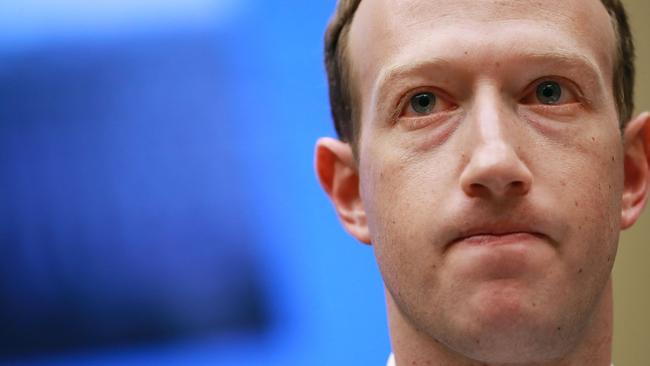Google, Facebook will have to play by the rules
We need details and it will take time, but Google and Facebook know the Wild West era is just about over.

The ACCC’s report on digital platforms is big on information about the impact of Google and Facebook in Australia and valuable, but its remedy is another process rather than more specific solutions, and nothing is going to change in a hurry.
That’s particularly obvious on the vital issue of how news - “fake” and “real” - is disseminated through Google and Facebook, the way they handle fake news, and how they can operate without jeopardising our democracy or adversely affecting elections.
The report acknowledges the obvious imbalance between traditional media - newspaper, radio and TV - and the new digital media platforms. The imbalance stems from traditional media being forced to deal with digital platforms at some level. Newspapers seek a presence of their stories there, whether they like it or not. We’ve seen cases of smaller media organisations going under when Facebook changed its algorithm for handling news on user feeds.
The ACCC’s solution is for digital platforms like Facebook, Google and Amazon to go away and develop a code of conduct on how they will deal with traditional media bodies. These codes need to address the sharing of data with news media businesses and a notification of changes to the ranking and display of news content.
After the recommendations are implemented, digital platforms will have nine months to develop their code and consult widely with news organisations otherwise the Australian Communications and Media Authority will thrust a code upon them. So that’s some time away. Other issues also come into the mix, such as agreeing on what constitutes fake news.
I have a distrust of bureaucratic processes being successfully able to address issues of power imbalance. The recommendations also need to be more specific.
Take the issue of Facebook algorithms, the complex formulas used to automatically determine what we see on its platform, and what we don’t see. As an ordinary Facebook user, I hate its algorithms, which decide which news from which of my family and friends I receive. I hate the idea of Facebook having become not only the medium but arbiter of my family news.
Translate this issue to public information, and we are trusting these digital platforms to deliver the volume of news we need to know, especially at election time. You might be critical of traditional media, but there is at least a regulatory framework in place.
The ACCC could have been more specific by demanding more transparency around these algorithms. The likes of Facebook and Google argue that algorithms are their intellectual property and if they are public, news organisations and others simply game them. But there’s more at stake.
NiemanLab, a Harvard University connected research body, and others have researched the impact of these algorithms over the years. In 2015, Facebook introduced an algorithm change that moved readers away from journalism and news to more updates about family and friends. Facebook implemented another change in 2016 further along that road.
The result was a big drop of traffic for CNN, ABC, NBC, CBS, Fox News, The New York Times and The Washington Post, as recorded by CrowdTangle. Facebook must have liked this research a lot because it bought CrowdTangle that year.
But these changes go beyond affecting the commercial success of traditional media, to democracy itself. These algorithms need to be far more transparent.
Sure, our federal election didn’t attract the controversy of the 2016 US election, with the Cambridge Analytica debacle, claims of Russian interference and the explosion of fake news.
But it would be enlightening - and interesting - if the ACCC specifically recommended a study into the impact of social media at the 2019 federal election, given it played a bigger role than ever before.
How does it affect Australian democracy?
The ACCC addressed the issue of there being fewer resources for journalism by recommending tax offsets for costs incurred by news media businesses in producing particular types of journalism. The best journalism that holds society to account is often the most expensive. I would have suggested that our tech giants be asked to pour money into such a fund. They’ve got plenty and their contributions would help ensure this type of journalism doesn’t die with their ascendancy.
It’s great to see Australia’s regulator at least detailing the impact these tech giants are having in Australia, but we also need a global response to their operation as they are global companies.
Europe already has implemented useful, practical proposals, such as requiring devices to offer you a choice of browsers (and not just Google Chrome), and notifications about apps and web pages seeking to access your data, location etc.
Finally, this report is the start of what will be a long process, with Treasurer Josh Frydenberg saying the government’s response will come before year’s end. So nothing is going to happen quickly.
Nevertheless our big tech giants are on notice that they will be held more accountable in Australia. The era where they do as they like is coming to a close.



To join the conversation, please log in. Don't have an account? Register
Join the conversation, you are commenting as Logout